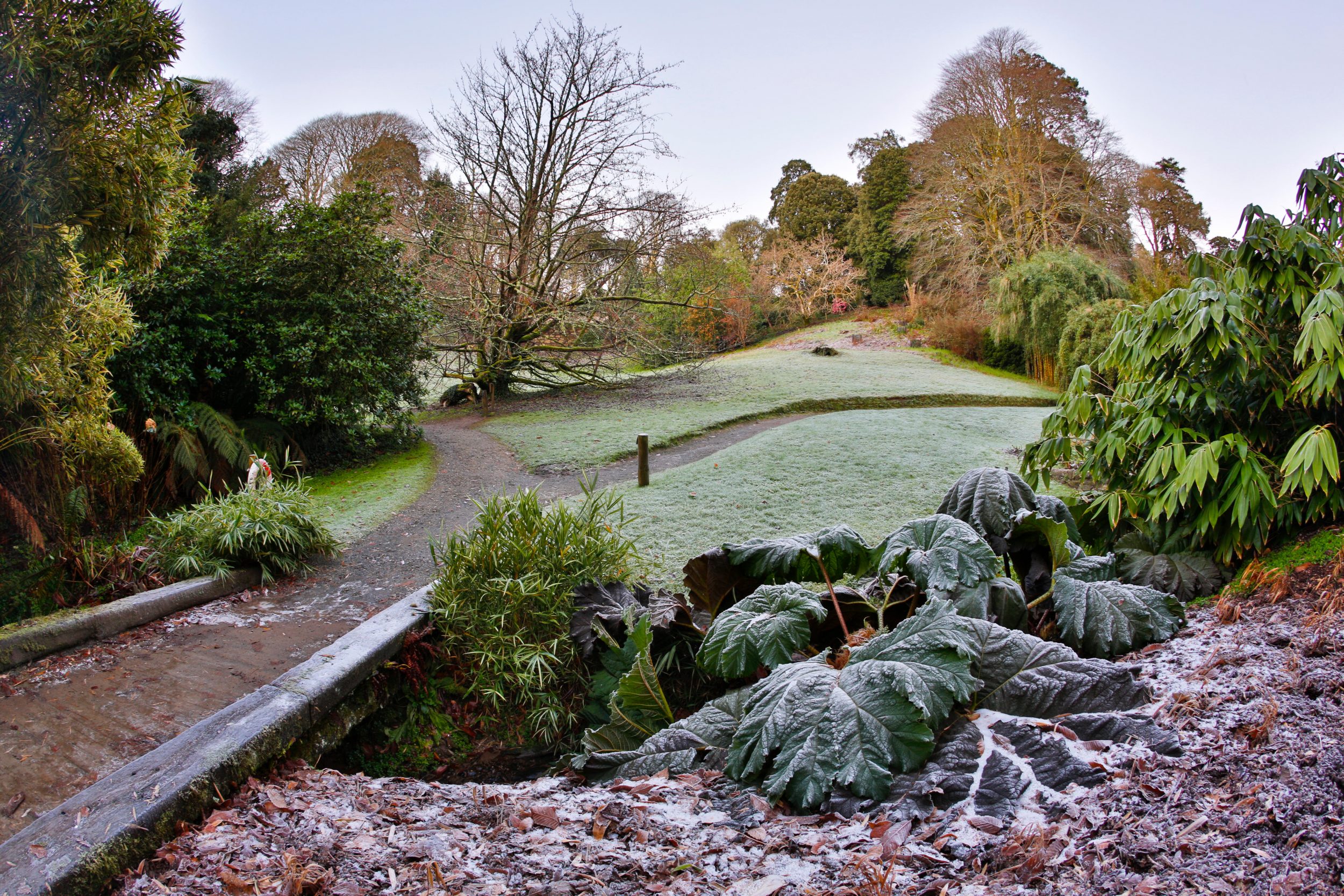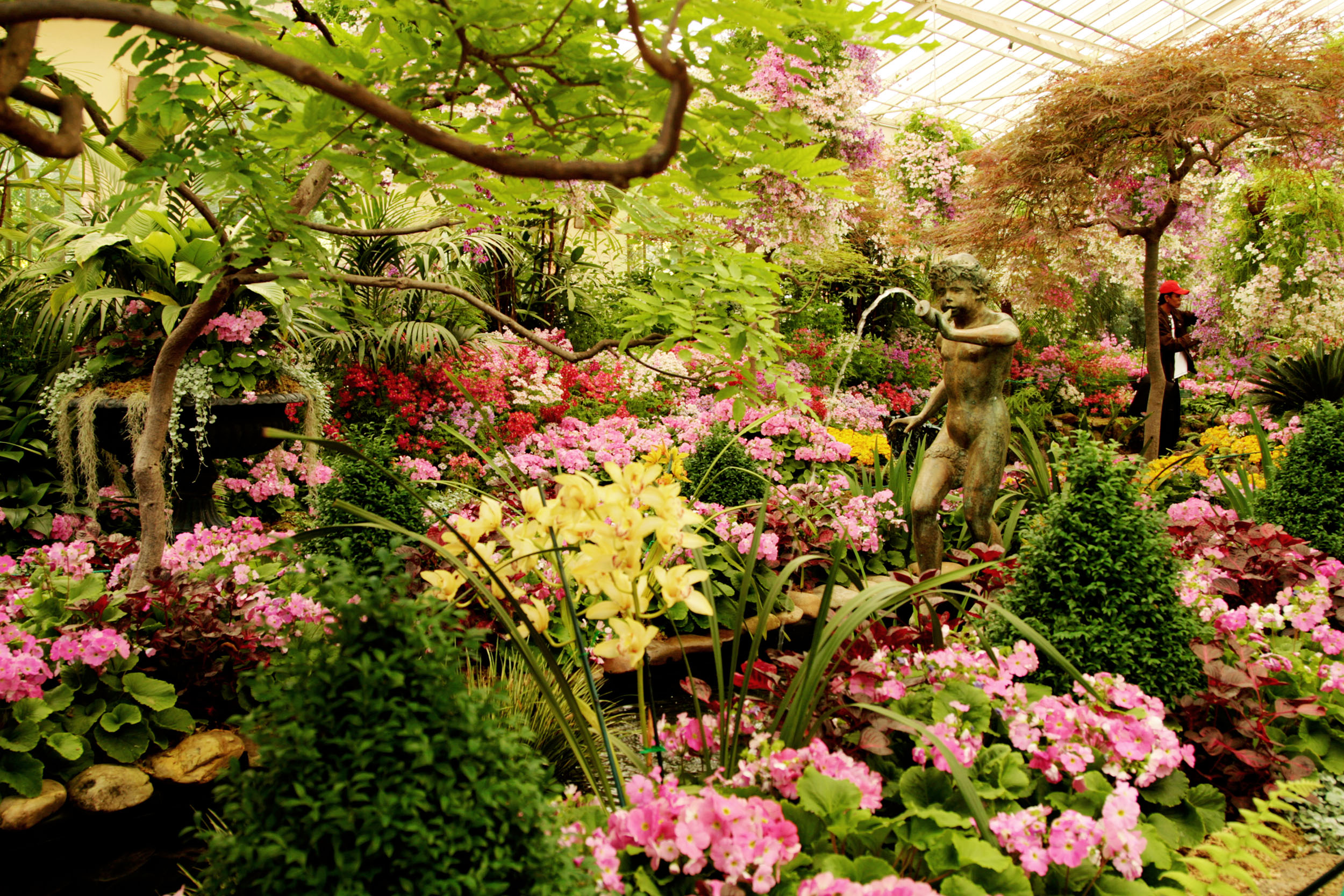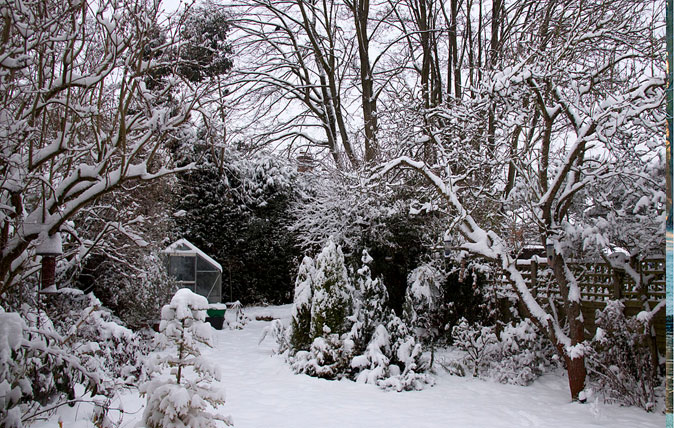Alan Titchmarsh: Why I hugged my trees on Christmas Day — and I don't care who knows it
Alan Titchmarsh explains why Christmas is such a very special day in his garden — and how he makes the most of it.


The rarest commodity on earth is neither diamonds nor gold; it is silence. It might be pretty quiet in the Sahara Desert or the Arctic, when the wind drops, but in cities, towns and villages right across the UK, it is rarer than hens’ teeth. Except on Christmas Day.
Sundays are much like any other day of the week nowadays, but, on Christmas Day, the world really does seem to stand still, from late morning until late afternoon at least, when all those travelling to friends and relations have already arrived and cracked open the bubbly or the Bristol Cream. It is between these hours that I venture out into my garden to look, but also to listen. The interminable bustle of daily life seems to be on hold for that briefest of interludes — even B&Q and DFS shut up shop to let staff enjoy their Christmas turkey, before flinging open their doors once more on Boxing Day.
Nobody photographs gardens in the middle of winter, unless they are garnished with hoar frost or shrouded in snow. Such eventualities are rare at Yuletide now and must quickly be snapped for posterity before footprints sully their perfection.
"They cry out to be caressed. Who cares if I am branded a tree hugger? I wrap my arms around trunks, pulling myself towards them as if testing their strength"
But even when gardens are simply grey and damp, there is still pleasure to be had. For me, it is to be enjoyed in the stillness of the air, the glistening of water droplets on the cobwebs that garland the evergreens; on holly berries washed by a winter shower and that deep impenetrable silence. I can hear myself breathe. I can hear my garden sleeping.
Keen gardeners keep an annual tally of things in flower on Christmas Day and there are always unseasonal surprises — a rose or two, maybe a solitary penstemon or a lunatic border perennial, each and every one a testament to H. E. Bates’s wise dictum: ‘Gardening, like love, is a funny thing and doesn’t always yield to analysis.’ I have found much comfort in that saying when confronted with a problem that seems insoluble.
My teenage birch trees — the lovely Betula utilis var. jacquemontii — with their papery bark the colour of double cream, shine out through the gloom, making me glad that I took the trouble after leaf fall to wash them with a cloth and rid them of the autumnal coating of green that reduces their luminosity. Fresh from their wash and brush up, they cry out to be caressed.
Who cares if I am branded a tree hugger? I wrap my arms around trunks, pulling myself towards them as if testing their strength.
Exquisite houses, the beauty of Nature, and how to get the most from your life, straight to your inbox.
Below, the autumn-flowering Cyclamen hedrifolium have all but finished their display, but the braver Cyclamen coum may have started to unfurl their smaller, more rounded-petalled blooms. The colours of white, pink and carmine catch the eye. Their foolhardiness lifts my spirits.
"Keen vegetable growers will sow their exhibition onions on Boxing Day and risk the divorce courts"
There are berries a-plenty, in spite of snipping holly to decorate the rafters of my barn. Firethorn — pyracantha (such a lovely direct translation from the Latin) — is left for the birds who, as if working their way through starter, main course and pudding, seem to take them in order of colour: red, orange, then yellow. These vivid berries contrast with those of arborescent ivy — sloe black and dusky, a roosting place for wrens and food for redwings, song thrushes, mistle thrushes and blackbirds.
Christmas roses (Helleborus niger) seldom make Christmas in my garden, where the later-blooming Lenten hellebores are the ones to look forward to with feverish anticipation. But a few early snowdrops might make it, pushing up through a carpet of copper-coloured beech leaves. Nothing holds them back — not even frosty ground — examine the reinforced tip of a snowdrop leaf and you will see why the plant’s expressive alternative name is ‘snow piercer’.
Keen vegetable growers will sow their exhibition onions on Boxing Day and risk the divorce courts. Those of us who pour our energies into what is rather disparagingly referred to as ‘ornamental gardening’ will think, instead, of sowing pelargonium and begonia seeds. But not on Christmas Day. In a week or two’s time, perhaps.
For now, anyone who wants to spend a few moments communing with Nature should slip outdoors after presents, church and the first glass of the day and breathe deeply, savouring the magic of that evanescent stillness.
From me and mine to you and yours, we hope you had a happy and, above all, a peaceful Christmas.

Credit: Moment Editorial/Getty
Alan Titchmarsh: Why I've decided that life's too short to keep growing the same old things in my greenhouse
Alan Titchmarsh's greenhouse has become a bit predictable – but he's now got big plans to mix things up.

Credit: Tony Hisgett
Alan Titchmarsh: Don’t stop gardening in winter – start dreaming
Alan Titchmarsh takes a look at the joys and pains of gardening in the winter
Alan Titchmarsh is a gardener, writer, novelist and broadcaster.
